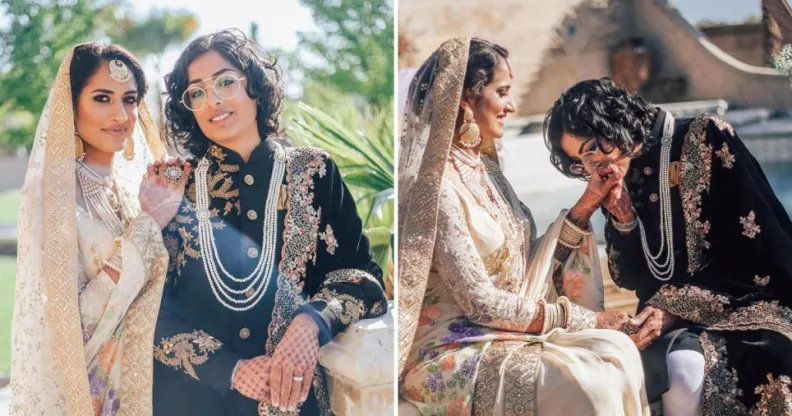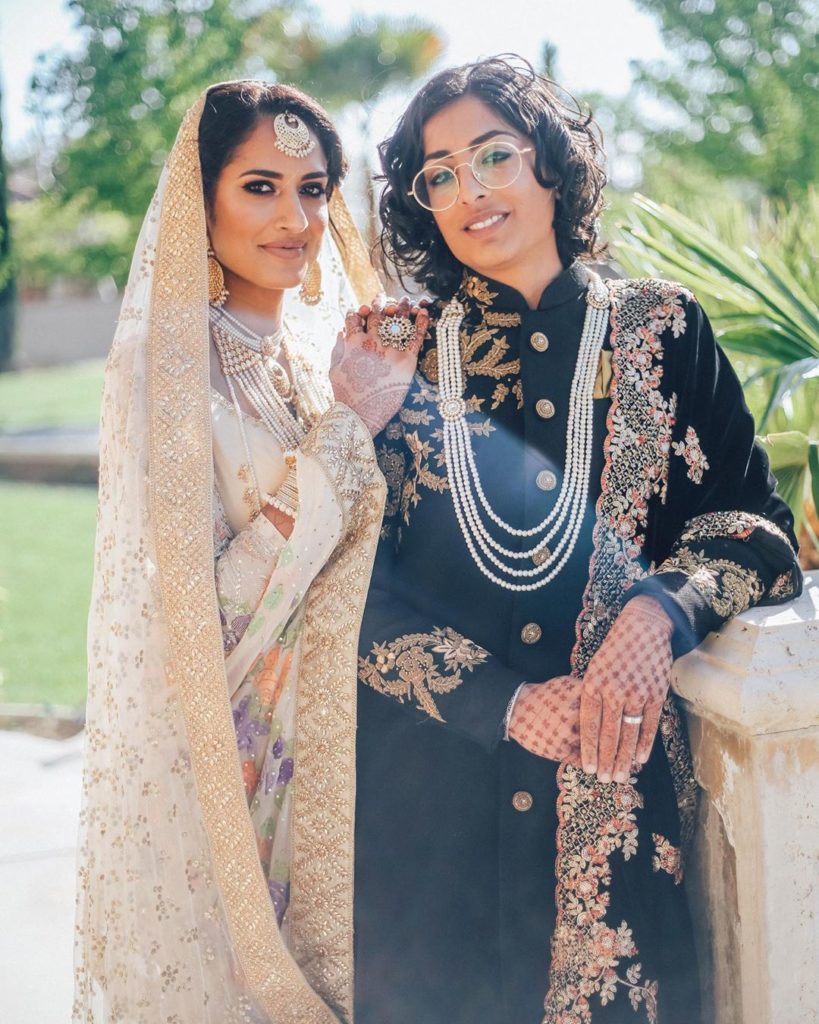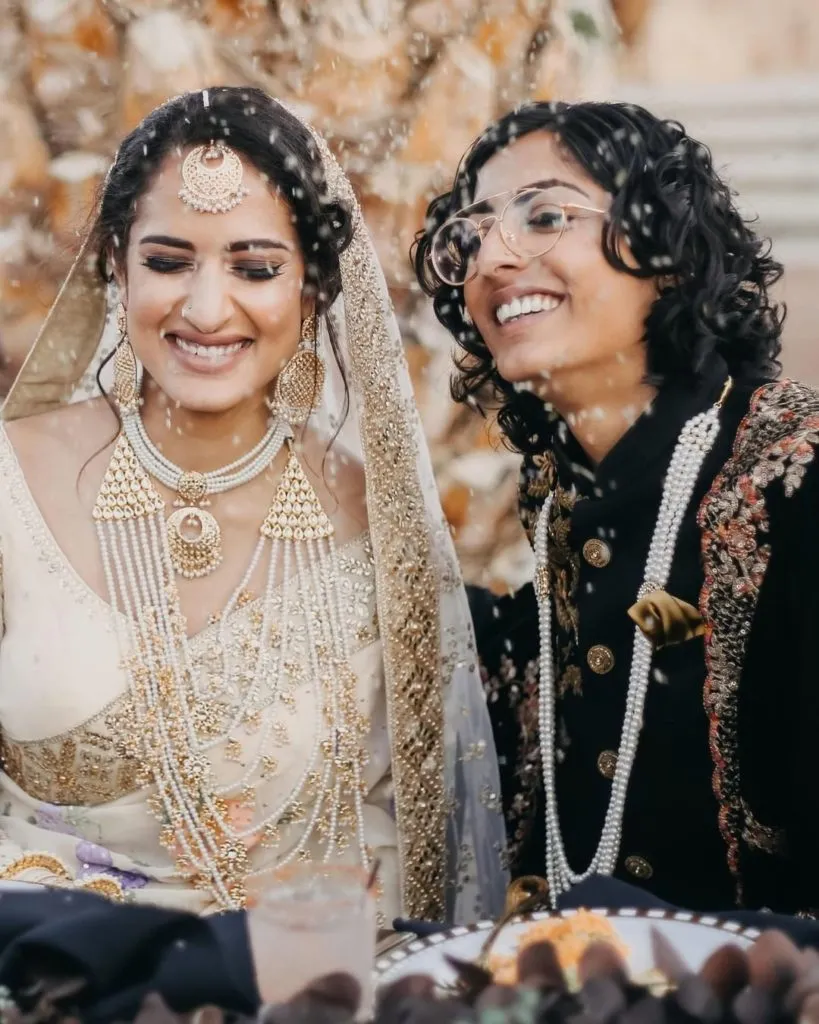Lesbian wedding of Pakistani-Indian couple – wearing sari and sherwani

This couple from India and Pakistan just got married (@biancamaieli/Senna Ahmad)
This couple from India and Pakistan just got married (@biancamaieli/Senna Ahmad)
In a lesbian wedding that showed “love has no borders”, two women – one from India, one from Pakistan – have married in a ceremony wearing traditional outfits.
Bianca Maieli wore an ivory sari at her wedding to new wife Saima Ahmad, who wore a sherwani – an outfit traditionally worn by male brides in South Asia.
Maieli is a Muslim Pakistani woman and Ahmad is a Columbo-Indian Christian.
The two married at a beautiful ceremony in California, which is where they live and where they met.
“Saima and I met through mutual friends in 2014 at a spoken word performance called ‘Coming Out Muslim’. We hit it off instantly and have literally been hanging out ever since!” Maieli told Indian wedding blog WeddingSutra.
The couple were dressed by South Asian fashion designer Bilal Hussain Kazimov.

Bianca Maieli (left) and new wife Saima Ahmad (right). (Instagram/@sennaahmad)
Maieli’s ivory sari was completed with a maang tikka (head jewellery), gold bangles and pearl kadas (bangles).
Ahmad’s sherwani was accompanied by a dupatta (scarf) on her side and a moti (read pearl) mala.
Maieli explained their wedding looks: “We were keen on incorporating facets of both cultures in a way that was respectful and personalised at the same time.
“We had four events, each with its own colour scheme and everything was mostly DIY.
“The celebrations began with the dhoki, which was dominated by blue. The mayoun, which is essentially the haldi ceremony, of course, was all yellow. Our mehendi featured lots of pink. The wedding was dressed in white, gold, and lavender.
“Our engagement colours had been black and gold so we wanted to contrast that. We added the lavender because we got married in spring.”

The couple at their wedding. (Instagram/@sennaahmad)
In India, same-sex marriage has not yet been legalised. Gay sex was decriminalised by India’s Supreme Court in September 2018.
Pakistan has no same-sex marriage and gay sex carries the death penalty, although there is no record of this being enforced. The country does, however, recognise a third gender and has recently introduced stronger protections for transgender people.

